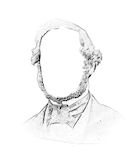
To-day Telegraph Engineer Henry I. Rogers, of New York, put in operation, on the western side of the Potomac, his newly invented telegraphic cordage or insulated line, for field operations, and it proved eminently successful, giving entire satisfaction in the manner in which it operated. It is run off reels upon the ground with great rapidity, (as required for instant use,) across streams, through woods, or over any localities. Lines were in extraordinarily short time laid between the head-quarters of General McDowell and two or three of his most advanced camps, and were worked in immediate connection with the telegraph station in the War Depatment. It is worthy of note that the heaviest artillery may run over the Rogers’ cordage without damaging its effectiveness in the least. It differs in many respects from the field telegraph used by Louis Napoleon in the Italian war, and embraces many advantages of convenient and certain operation under any possible circumstances over that (Louis Napoleon’s) which contributed so signally to the success of the French arms. —Baltimore American, June 22.
—The Second Rhode Island Regiment, Col. Slocum, accompanied by the Providence Marine Artillery Corps, with a full battery (six pieces) of James’s rifled cannon, arrived at New York, on their way to Washington. Governor Sprague and a portion of his staff, including Colonels Goddard and Gardner, and two others, accompanied them.—(Doc. 23.)
—This evening while the United States steamer Colorado was at sea, a break occurred in the after standard supporting the reversing shaft to the propeller. It had broken midway, and at a point where a triangular shaped piece had been sawed out of the rib, and a nicely fitted piece of soft wrought iron inserted and fastened by a small tap bolt. The surfaces had then been filed smoothly and painted over as before. But for the breakage it would have escaped the most critical examination. A strict inspection was made of the other parts, resulting in the discovery of a similar work upon the forward standard of the reversing shaft. Several other flaws were discovered, and the conclusion was irresistible that some villain had wrought all this mischief for the purpose of disabling the ship. A delay was caused before the repairs could be made, and the vessel again proceed on its course.—N. Y. Herald, June 27.
—At Willet’s Point, N. Y., interesting ceremonies took place on the occasion of blessing the standards of Col. McLeod Murphy’s regiment, and the presentation of colors by Col. Bradford, of Gov. Morgan’s staff. A large number of visitors attended, and interesting speeches were made by D. Thompson, Judge Charles P. Daly, Orestes A. Brownson, and others.—N Y. Times, June 21,
—Thirteen rebels were captured at Clarksburg, Va., this morning by the 3d Virginia Regiment. A secession flag and arms were also captured.—Louisville Journal, June 22.
—Gov. Harris, in a message to the legislature of Tennessee, recommends the passage of a law requiring payment to be made of all sums due from the State to all persons or the Government on terms of peace, and advises such a policy toward the citizens of the belligerent States as the rules of war justify. He recommends the issue of Treasury notes to pay the expenses of the Provisional Government, to be receivable as currency.
Major-General McClellan to-day assumed command in person of the Western Virginia forces. He expects to have 16,000 men in the field before Saturday night.—N. Y. Commercial, June 21.
—Cornelius Vanderbilt offered all the steamships of the Atlantic and Pacific Steamship Company to the Government, including the Vanderbilt, Ocean Queen, Ariel, Champion, and Daniel Webster, to be paid for at such rate as any two commodores of the United States Navy and ex-Commodore Stockton might decide upon as a proper valuation.—(Doc. 24.)
—In the Wheeling (Va.) Convention, Frank H. Pierpont, of Marion county, was unanimously elected Governor; Daniel Paisley, of Mason county, Lieutenant Governor, and Messrs. Lamb, Paxhaw, Van Winkle, Harrison, and Lazar to form the Governor’s Council. The election of an attorney-general was postponed till Saturday. The Governor was formally inaugurated in the afternoon, taking in addition to the usual oath, one of stringent opposition to the usurpers at Richmond. He then delivered an address to the members of the convention, urging a rigorous prosecution of the work of redeeming the State from the hands of the rebels. After the inauguration, the bells were rung, cannon were fired, and the whole town was wild with delight—(Doc. 25.)
—The Second New Hampshire Regiment left Portsmouth, for the seat of war. Previous to their departure, the Goodwin Riflemen, attached to the regiment, were presented with a banner. It had on one side the coat of arms of the State, with an inscription showing that the flag was given by the ladies of Concord, and on the other side was a representation of the Goddess of Liberty, with the inscription in gold letters, “Goodwin Rifles.” At Boston, Mass., on the arrival of the troops, they were entertained by the sons of New Hampshire resident in that city. —(Doc. 26.)
—Gov. Robinson of Kansas issued a proclamation calling on all good citizens to organize military companies for the purpose of repelling attacks from the rebels in Missouri.










